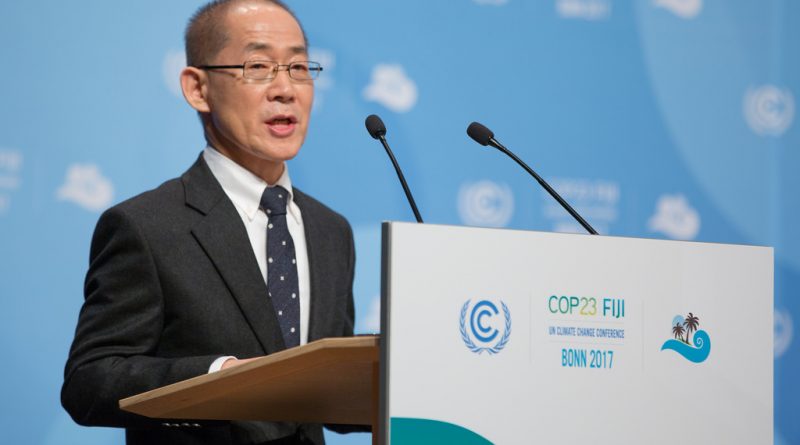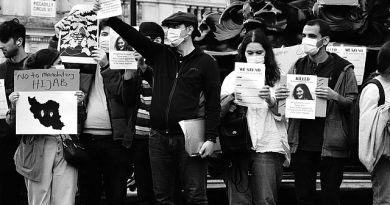United Nations Climate Report Warns 12 Years to Control Climate Change
By Judy Koren
Staff Writer
The Intergovernmental Panel on Climate Change (IPCC) announced the Sixth Assessment Cycle, the most recent report released as the international organization releases each section of the report in waves. These reports range from covering the impacts of global warming to the impacts of a rapidly changing climate on the ocean and cryosphere. The first special report was released in early October, covering the impacts of a rise of global temperature by 1.5 degrees Celsius above pre-industrial levels.
During the IPCC’s 43rd session in 2016, it was decided they would release three Special Reports over the course of one year. The Intergovernmental Panel on Climate Change (IPCC) is an international body for the assessment of climate change. Established by the United Nations Environment Program (UNEP) and the World Meteorological Organization (WMO), the IPCC website states that they were developed to provide the world with the current information on climate change and the potential environmental and socio-economic impacts.
The beginning of the Sixth Assessment described a far more catastrophic image of the impacts climate change will have on the earth if global leaders do not step up and demand change. The New York Times sums up the Special Report in two points: “the IPCC describes a world of worsening food shortages and wildfires, and a mass die-off of coral reefs as soon as 2040.” This timetable gives the global population no more than 12 years until there are intense droughts and poverty specifically caused by an increase of the atmospheric temperature by 1.5 degrees Celsius
Bill Hare, a physicist with Climate Analytics and an author of previous IPCC Assessments, told The New York Times that the report “is quite a shock, and concerning. We were not aware of this just a few years ago.”
The Washington Post states that in order to prevent the inevitable, the world’s annual carbon emissions, which currently stand at 40 billion tons, needs to decrease by 1 billion tons every year. In fact, by 2050, the report calls for a “near-total phaseout of the burning of coal.”
When coal burns it primarily releases carbon dioxide into the atmosphere, which is one of the most prevalent and destructive greenhouse gases. These gases trap heat in the atmosphere, thus causing a rise in overall global temperature over time. According to The Washington Post, Erik Solheim, executive director of the UNEP said, “net zero must be the new global mantra.” In other words, humans need to find a way to remove as much carbon as possible from the air, as it is release.
In order to truly understand what would happen if the world were to face a 1.5° C temperature increase, The New York Times provides an outline for a simple half degree increase to 2.0 degrees Celsius. This article outlines these results regarding the impacts on arctic sea ice, the frequency of heat waves, water supply, plants and animals in general, coral reefs and sea level rise from a simple half-degree difference.
If the global temperature were to rise to 2.0 degrees Celsius, Earth is 10 times more likely to have ice-free summers. For water scarcity, more than 411 million people will face water shortages, compared to 350 million people.
Plants and animals will face catastrophic habitat destruction; insects will lose 18 percent of their original habitat while plants will lose 16 percent and vertebrates 8 percent; all these numbers doubled from a 1.5 degrees Celsius global temperature rise. In addition, coral reefs will “mostly disappear.” Instead of 31 to 69 million people being exposed to sea level rise, this number will jump to the range of 32 to 80 million.
The Guardian reports that Chris Stark, chief executive of the United Kingdom Committee on Climate Change (CCC), emphasized market intervention and industry regulation. Stark went on to say that although the UK will be scrutinized for their decisions based on the IPCC report, that they will stick up to that scrutiny and “force politicians to make hard decisions.”
In contrast, U.S. President Donald Trump casted doubt on the UN report, according to Business Insider. President Trump suggested that that IPCC report is no more credible than others that claim the environment is “fabulous,” but he did not specify any. Business Insider reminded that President Trump called climate change a “hoax” and even tweeted in 2012 that “the concept of global warming was created by and for the Chinese in order to make U.S. manufacturing non-competitive.”


